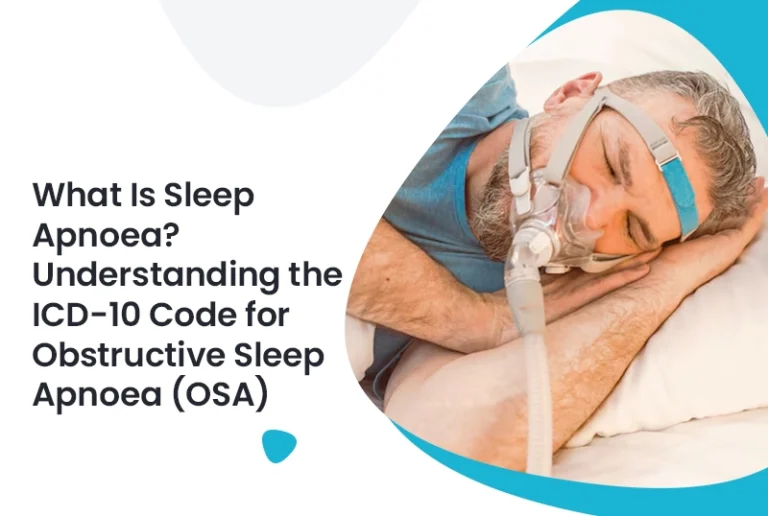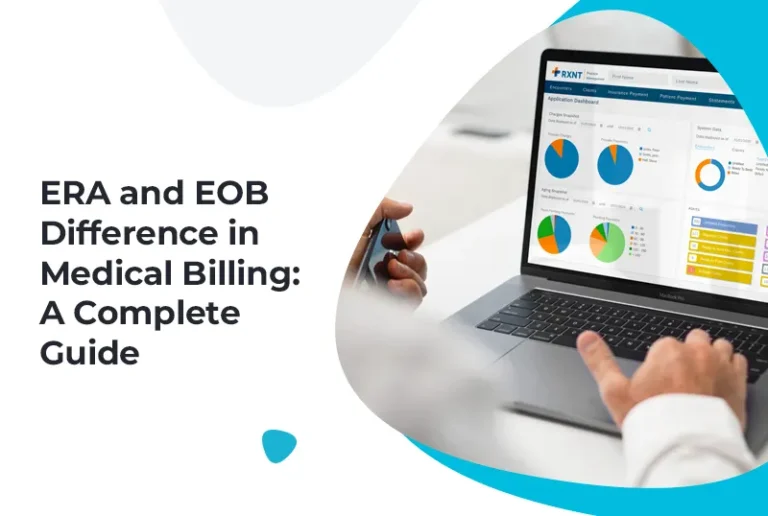When it comes to diagnosis coding, small mistakes lead to big revenue leaks. One such silent culprit?
The underweight ICD-10 code, R63.6, plays a pivotal role in clinical documentation accuracy and successful insurance reimbursement. When the underweight icd 10 code is not properly documented or supported with clinical details like BMI or related symptoms, this code can lead to claim rejections and delayed payments.
That is why partnering with a medical billing company is essential. An experienced and specialized billing team can ensure the correct use of underweight ICD-10, flag missing documentation, and optimize claim submissions to reduce revenue loss.This coding helps medical experts catering and treating pediatric, geriatric, or weight-sensitive patients to help maintain their financial health.
What is Underweight ICD-10 Code R63.6?
The ICD-10 Code which is officially known and listed as R63.6 and it is used to document and record patients who have a significantly lighter weight than the ideal recommended weight bracket which is considered healthy for their age, height, or developmental stage.
It is most commonly used to identify patients who are underweight, but do not yet meet the criteria for malnutrition. Below mentioned are some of the common scenarios experienced among underweight complaints.
- Common Scenarios:
- Pediatric patients with low BMI for age
- Geriatric patients showing signs of unintentional weight loss
- Post-surgical patients with poor weight recovery
Why Underweight ICD-10 Coding Is Often Overlooked
Despite its simplicity, the underweight ICD-10 code R63.6 is often overlooked in documentation and billing.
- It’s frequently underdocumented, leading to claim rejections and delays.
- Without supporting symptoms like fatigue, poor appetite, or low BMI, it may not meet medical necessity.
It’s often bundled incorrectly with other codes, which can impact reimbursement for related services.
Proper Documentation for Underweight ICD-10
To use underweight ICD-10 correctly:
- Always include BMI if applicable
- Document associated symptoms like fatigue, poor appetite, or muscle loss
- Record any clinical intervention like diet counseling, labs, or referrals
Takeaways for medical records:
To code underweight ICD-10 (R63.6) for correct diagnosis documentation, you must include specific and relevant details in the patient’s medical record. For instance, write “Patient BMI is 16.8; signs of fatigue and poor appetite present” so that the documentation clearly demonstrates medical necessity.
Additionally, note the clinical action taken such as “Referral to nutritionist for underweight management”. To demonstrate that the diagnosis prompted appropriate care. These details not only support proper coding but also strengthen the justification for reimbursement.
As a result, you reduce the risk rejection and ensure your billing process runs smoothly.By including these details, you ensure proper coding and make your case strong for reimbursement, which helps prevent denials and keeps your billing process efficient.
What Happens If You Code R63.6 Wrong?
In cases of wrong coding you may face a lot of negative consequences such as:
- Claim denials due to missing documentation
- Delays in reimbursement while corrections are processed
- Compliance risks during audits
And here’s where the dominoes start falling. One incorrect underweight ICD-10 claim can put multiple visit-related codes in jeopardy. This is where revenue cycle management services step in to protect your cash flow.
How to Bill R63.6 Without Losing Sleep (Or Money)
In order to code properly you need to go through this step by step medical checklist:
- Check medical necessity — Does the underweight status require attention?
- Use additional codes — Symptoms like fatigue (R53.83), anorexia (R63.0), etc.
- Tie R63.6 to action — Note exams, tests, or treatments triggered by the diagnosis
- Don’t upcode or undercode — Stay aligned with physician notes
Know the difference! When to Use Undereight ICD-10 with Other Diagnoses
Sometimes, the underweight ICD-10 code R63.6 doesn’t tell the full clinical story on its own. You may need to include additional diagnosis codes to capture the complexity of the case depending on the patient’s condition.
For pediatric patients with poor weight gain, use R62.51 alongside R63.6. For adults with unexplained weight loss, add R63.4. If severe malnutrition is documented, include E43—only when clinically justified.
Why Accurate Underweight Coding Matters for Your Practice
- Using the underweight ICD-10 code correctly can significantly boost your claim approval rates, payers are more likely to process claims without delays.
- In addition, proper coding reduces the need for resubmissions. Instead of wasting time fixing rejected claims.
- Furthermore, accurate underweight coding minimizes audit triggers. When your documentation aligns with the diagnosis, you lower your risk of costly audits.
- You also improve revenue visibility within your EHR and billing systems. By coding it precisely, you ensure that reports reflect true patient needs, helping make better financial and clinical decisions.
- Most importantly, correct coding supports quality patient care. It highlights nutritional risks early, allowing providers to intervene sooner and prevent more serious health issues.
Real-World Use Case: Pediatric Practice Pitfall
A pediatrician codes underweight ICD-10 (R63.6) without adding BMI or ordering labs. The claim is denied. After resubmitting with BMI percentile and nutrition referral, payment is approved — but only after 45 days.
Did you learn your lesson now? Always support R63.6 with measurable data.
The crucial role of experts
Getting coding right consistently takes vigilance. That’s why many U.S. practices trust a professional team that specializes in medical billing and coding. With expert oversight, you can:
- Flag documentation issues before submission
- Avoid denial patterns
- Keep your billing clean, compliant, and profitable
Conclusion: Don’t Underestimate Underweight ICD-10
The R63.6 code may be small, but its billing impact is not. As a provider, it’s your responsibility to ensure clinical accuracy, while your billing team protects the financial side. Together, you’ll keep your practice healthy in every aspect.
FAQs
Q1. What is the ICD-10 code for underweight?
The ICD-10 code for underweight is R63.6.
Q2. Can I bill it without other symptoms?
Yes, but it’s risky. You must justify medical necessity with documentation, BMI, or follow-up actions.
Q3. Is underweight ICD-10 code reimbursable?
Yes, if properly supported with medical documentation and linked services like nutrition counseling.
Q4. How can I prevent billing errors with underweight ICD-10?
Partner with an expert medical billing expert and ensure your EMR documentation matches the billed code.







